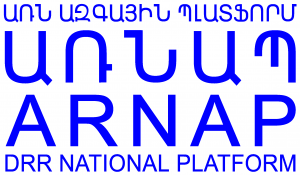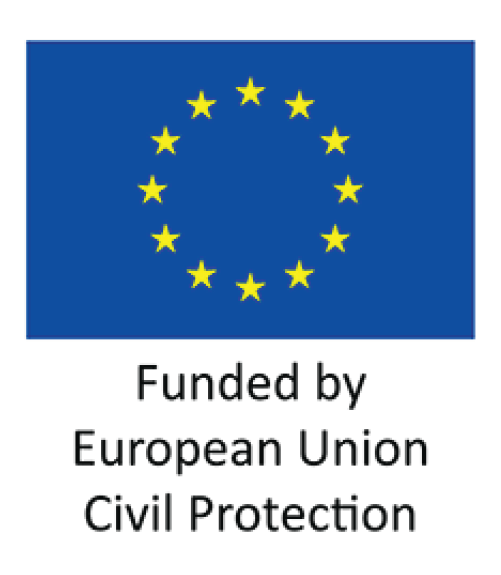The following projects are working in partnership with ALTER on DRR related activities in the region.
EPOS-IP, European Plate Observing System – Implementation Phase
Project Start Date: 01/10/2015
Project End Date: 30/09/2019
Project Website: https://www.epos-ip.org
Project Description: Funded by EU H2020-INFRADEV-1-2015-1, Project ID: 676564, Total Budget: EUR 18.373M, coordinated by Istituto Nazionale di Geofisica e Vulcanologia (INGV). The EPOS Implementation Phase project is a key step in EPOS’ vision of a pan-European Earth science monitoring platform. Building on the EPOS Preparatory Phase project (2010-2014), it will deliver not only a suite of domain-specific and mulitdisciplinary services in one platform, but also the legal and governance, and financial frameworks to ensure the future operation and sustainability of the platform. Funded under the European Commission’s Horizon 2020 programme, the EPOS IP project is organized in three main strategic actions:
- Implementation of services for data provision in an effective legal and financial framework;
- Harmonisation of EPOS implementation with national priorities and strategies;
- Management guaranteeing an efficient running of the work plan from the technical, administrative, and financial perspective as well as ensuring effective links with the establishment of EPOS-ERIC.
SERA, Seismology and Earthquake Engineering Research Infrastructure Alliance for Europe
Project Start Date: 01/05/2017
Project End Date: 30/04/2020
Project Website: http://www.sera-eu.org
Project Description: An Horizon 2020 program in the topic INFRAIA-01-2016-2017 ‘Integrating Activities for Advanced Communities’. SERA aims to reduce the risk posed by natural and anthropogenic earthquakes based on innovative research and development projects. SERA will significantly improve the access to data, services and research infrastructures for scientists and other professionals. More specifically, SERA:
- collaborates with researchers involved in previous seismology and earthquake engineering projects like EPOS, NERA, SHARE, SERIES, NERIES, and SYNER-G;
- facilitates access to ten high-class experimental facilities such as shaking tables and reaction walls;
- offers access to data and products in seismology and anthropogenic seismicity in Europe;
- promotes multi-disciplinary science across the domains of seismology, anthropogenic seismicity, near-fault observatories, and deep underground laboratories to achieve an improved understanding of earthquake occurrence;
- facilitates collaboration and innovations in the fields of deep seismic sounding, experimental earthquake engineering, and site characterization.
These efforts will lead to a revised European seismic hazard reference model. Also, the outcomes of the project will help to develop a first, comprehensive framework for seismic risk modelling at European scale. Furthermore, SERA will contribute to new standards for future experimental observations in earthquake engineering and reliable methodologies for real-time assessment of shaking and damage.
EOSC-hub, Services for the European Open Science Cloud
Project Start Date: 01/01/2018
Project End Date: 31/12/2020
Project Website: https://www.eosc-hub.eu
Project Description: EOSC-hub is funded by the European Union’s Horizon 2020 research and innovation programme under grant agreement 777536. EOSC-hub brings together multiple service providers to create the Hub: a single contact point for European researchers and innovators to discover, access, use and reuse a broad spectrum of resources for advanced data-driven research. For researchers, this will mean a broader access to services supporting their scientific discovery and collaboration across disciplinary and geographical boundaries. The project mobilises providers from the EGI Federation, EUDAT CDI, INDIGO-DataCloud and other major European research infrastructures to deliver a common catalogue of research data, services and software for research. EOSC-hub collaborates closely with GÉANT and the EOSCpilot and OpenAIRE-Advance projects to deliver a consistent service offer for research communities across Europe.
Strengthen Community Based Resilience And Environmental Emergency Preparedness Capacities In Armenia
Project Start Date: 01/03/2016
Project End Date: 01/09/2017
Project Description: The proposed project will strengthen community resilience by applying a multi-hazard approach to preparedness and development and by strengthening coordination between key actors – including local, environment and emergency authorities, private sector and civil society. The activities will target local actors and communities in disaster prone area of Kapan city in Armenia (Annex 2 and annex 2.1) and neighboring Syunik rural community, but also be further spread to the regional and national level.
Risk-informed development, considering not only natural hazards but also technological hazards caused by industrialization, urbanization and legacy, are considered a priority for sustainable development. The project will make use of international and national methodologies to identify potential risks caused by natural as well as man-made hazards and ensure these are addressed in a community’s development cycle.
These methodologies include:
- Local Government Self-Assessment Toolkit (LGSAT) – an innovative foresight methodology developed by UNISDR which will help to set baselines, identify gaps, develop city resilience plan of actions and measure advancements over time;
- Flash Environmental Assessment Tool (FEAT) – a science-based tool which is used to assess the potential impacts of industrial accidents; and
- Local Level Risk Management (LLRM) – a full compilation of tools and procedures designed for local level risk management and risk informed development.
Science-based multi-risk assessment will be carried out with the aim of modelling of GIS-based multi-risk scenarios. Assessments will be undertaken as a multi-stakeholder process led by local governments and with the involvement of public and private sector. The resulting assessments will be used for developing preparedness plan, where the process itself will support a culture of risk-informed development and strengthen partnerships.






